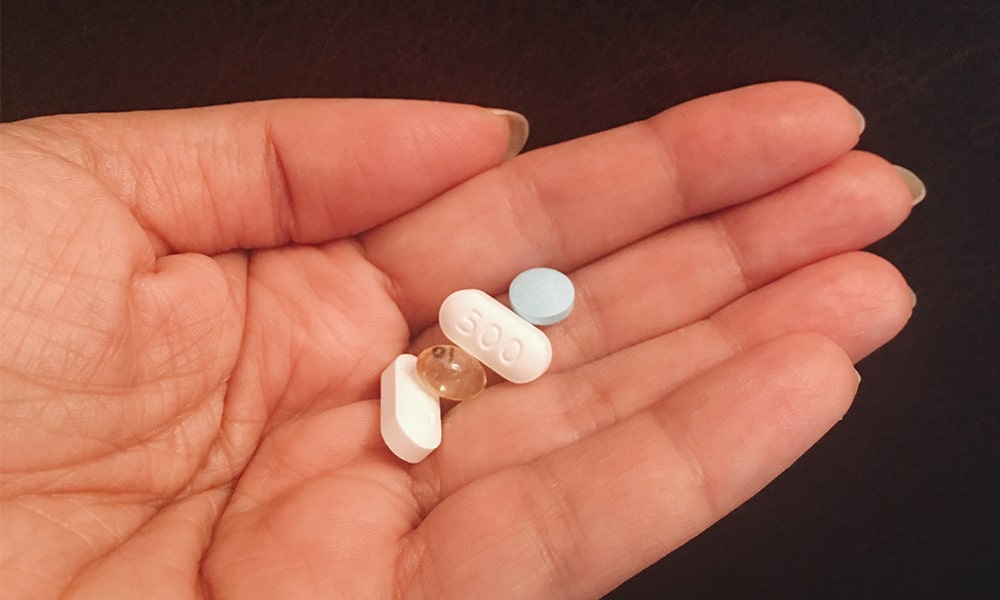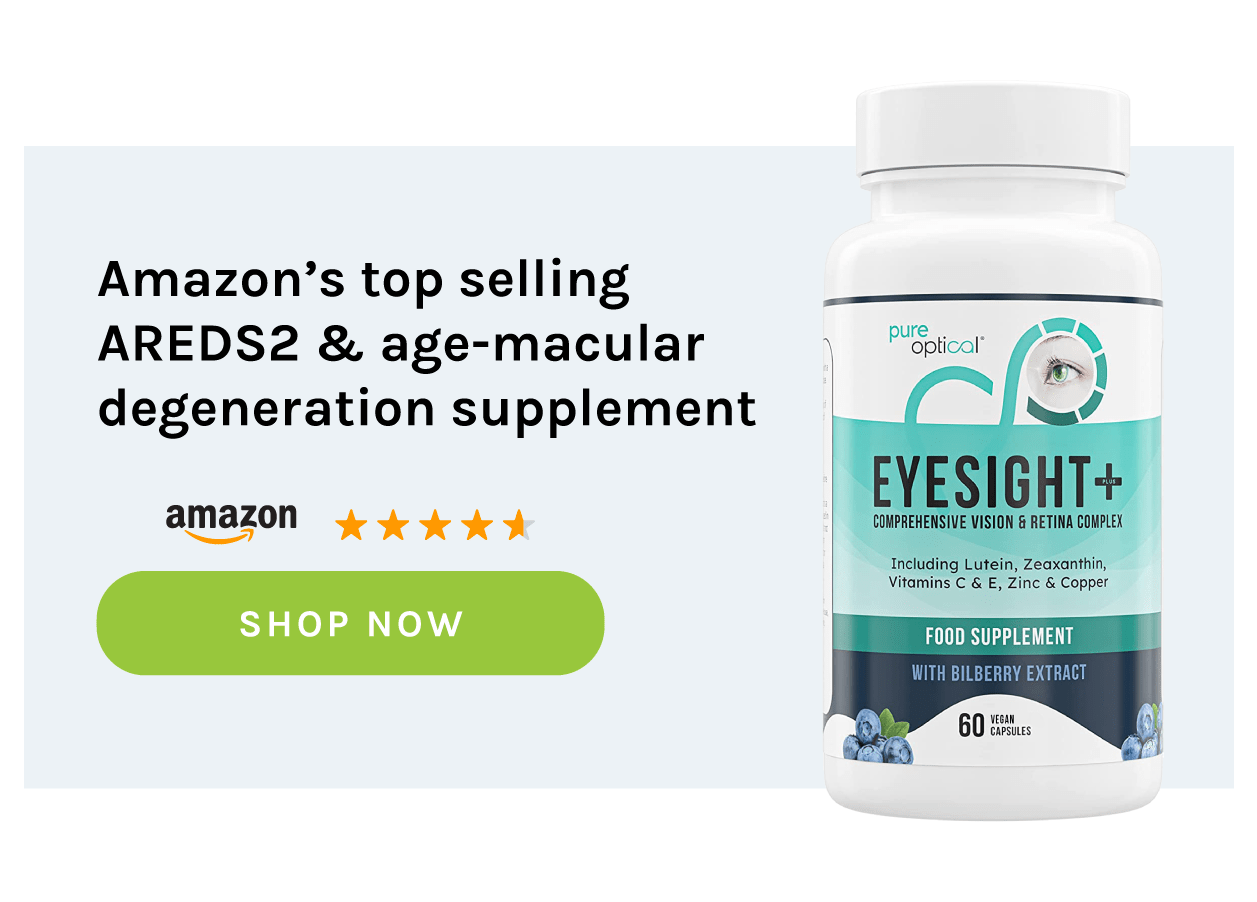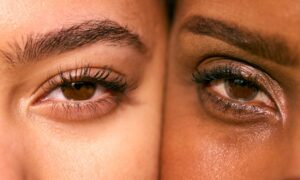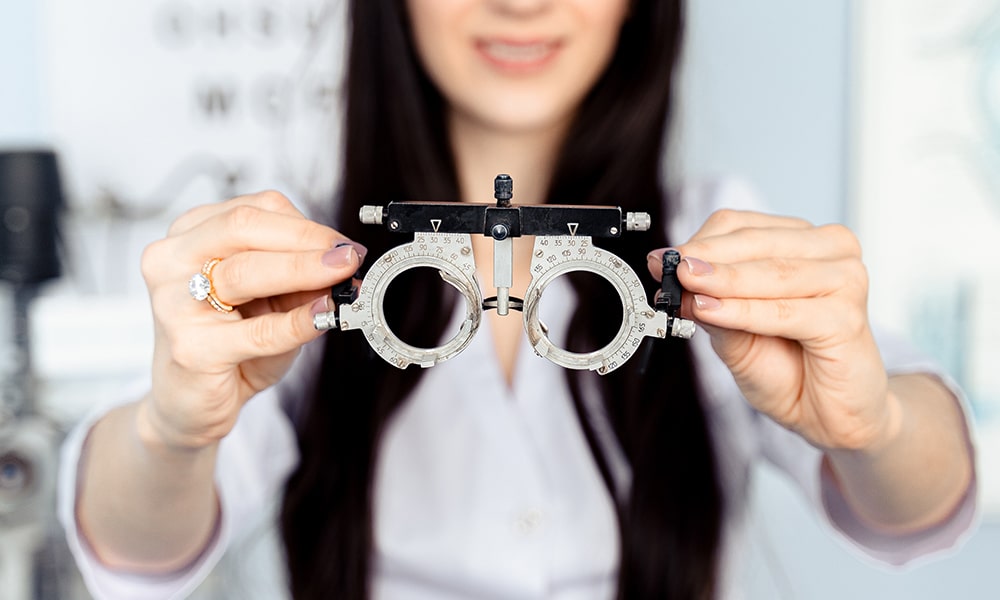
Macular degeneration, also known as age-related macular degeneration (AMD), is a common eye condition that affects the central portion of the retina, the macula. It leads to a loss of central vision which can greatly impair tasks like reading, recognising faces, and driving. Given the prevalence and severity of this condition, many people are keen to understand how to best prevent or manage it. One route that is often explored is the role of eye vitamins. So, what is the best eye vitamin for macular degeneration?
The science behind AMD and vitamins
Macular degeneration is a degenerative eye disease that, over time, damages the macula – the small central portion of the retina responsible for clear central vision. A deeper look into the condition reveals that oxidative stress plays a pivotal role in the onset and progression of AMD. This is where vitamins come into the picture.
Oxidative stress and free radicals
The retina is one of the highest energy-consuming tissues in the body. The constant exposure to light and the high metabolic rate lead to the production of reactive oxygen species (ROS) or free radicals. These ROS can damage cells, proteins, and DNA within the retina, leading to cellular ageing and death.
Antioxidants to the rescue
Antioxidants are molecules that neutralise free radicals, preventing them from causing damage. Vitamins, especially certain types like vitamin C, vitamin E, and beta-carotene, are known to have strong antioxidant properties. By neutralising the ROS, these vitamins help protect the retina from oxidative damage, thus potentially slowing the progression of AMD.
Linking nutrition and eye health
Research has shown a correlation between diets rich in antioxidants and a reduced risk of developing AMD. This further underscores the importance of vitamins, both as part of daily nutrition and as supplements, in managing and potentially preventing AMD.

The AREDS and AREDS2 studies
The primary source of knowledge about vitamins and AMD comes from the Age-Related Eye Disease Study (AREDS) and its successor, AREDS2. Both of these studies were sponsored by the U.S. National Eye Institute.
1. AREDS findings
The original AREDS study discovered that a specific combination of vitamins and minerals could reduce the risk of AMD progression by about 25% in those who already had intermediate AMD or advanced AMD in one eye. This formula included:
- Vitamin C
- Vitamin E
- Beta-carotene
- Zinc
- Copper
2. AREDS2 findings
Given concerns about beta-carotene (particularly for smokers, as it increased their risk of lung cancer), the AREDS2 study aimed to refine the formula. The resulting recommendations replaced beta-carotene with:
- Lutein
- Zeaxanthin
The AREDS2 formula also tested the effects of adding omega-3 fatty acids (DHA and EPA), but these were not found to have a significant impact on AMD progression.
Choosing the best vitamin supplement
Based on the findings from the AREDS and AREDS2 studies, the following combination is recommended for those at risk of AMD or who have been diagnosed with early-stage AMD:
| Ingredient | Amount |
| Lutein | 10mg |
| Zeaxanthin | 2mg |
| Vitamin C | 500mg |
| Vitamin E | 400UI |
| Zinc Oxide | 25mg or 80mg |
| Cupric Oxide | 2mg |
When looking for a supplement, it’s crucial to ensure that it:
- Conforms to the AREDS or AREDS2 formula. The specific dosages and combinations have been shown to be effective, so it’s wise to choose an AREDS2 supplement that matches these recommendations.
- Is from a reputable manufacturer. As with all supplements, quality can vary. Look for brands that have a good reputation for purity and quality.
Considerations and side effects
As with any supplement or medication, it’s important to be aware of potential side effects:
- Zinc: At high doses, zinc can cause nausea, vomiting, diarrhoea, and stomach cramps. Long-term high doses can lead to other issues such as lower immunity and lower levels of “good” HDL cholesterol.
- Interactions: These supplements can interact with other medications. It’s crucial to consult with an ophthalmologist or GP before beginning a supplement regimen.
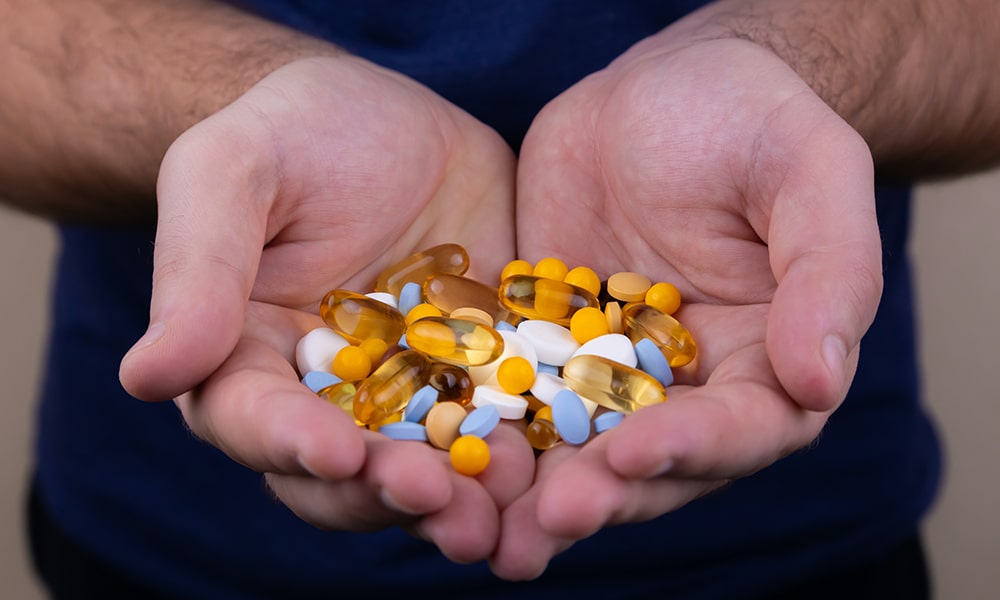
The role of diet in eye health
Diet plays a pivotal role in overall health, including eye health. In the context of AMD, certain foods have been identified that can either help prevent the onset of the condition or slow its progression.
1. Leafy greens
Kale, spinach, and collard greens are packed with lutein and zeaxanthin, two potent antioxidants that are also found in the macula. These antioxidants help protect the macula from harmful high-energy light waves like ultraviolet rays.
2. Colourful fruits and vegetables
Orange, yellow, and red fruits and veggies, such as peppers, corn, oranges, and mangoes, are rich in beta-carotene, vitamin C, and other antioxidants that promote eye health. Blue and purple fruits like blueberries and grapes are high in anthocyanins, which have been linked to a decreased risk of AMD.
3. Fish and omega-3s
Fatty fish like salmon, mackerel, and sardines are rich in omega-3 fatty acids, particularly DHA and EPA. These fats are known to have anti-inflammatory properties. Inflammation is another key factor in the development and progression of AMD. Regular consumption of fish can provide these essential fats, which could be protective against AMD.
4. Nuts and seeds
Almonds, walnuts, flaxseeds, and chia seeds are also excellent sources of omega-3 fatty acids and vitamin E. Vitamin E is a potent antioxidant that can protect cells in the eyes from unstable molecules called free radicals, which break down healthy tissue.
5. Whole grains
Dietary fibre from whole grains can help reduce the risk of age-related macular degeneration. Foods like quinoa, brown rice, and whole grain bread and pasta are excellent choices.
6. Eggs
The yolk is a prime source of both lutein and zeaxanthin and can be a valuable addition to a diet aimed at preventing AMD.
Limiting harmful foods
Just as certain foods can promote eye health, others might exacerbate the risk. Diets high in processed foods, sugars, and unhealthy fats may increase the risk of AMD. It’s beneficial to moderate the intake of these and focus on a balanced, nutrient-rich diet.
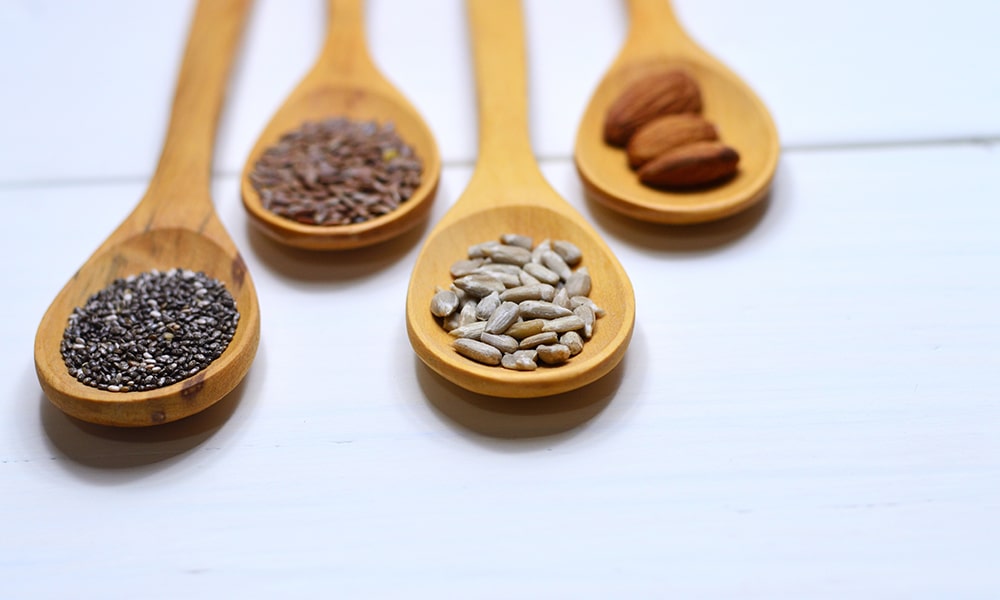
You can help manage the progression of AMD
Macular degeneration is a serious condition, but the right combination of vitamins and nutrients, based on the AREDS and AREDS2 studies, can help manage its progression. Always consult with a healthcare professional before starting any new supplement, and consider the broader dietary picture as a part of an overall strategy to maintain eye health.

